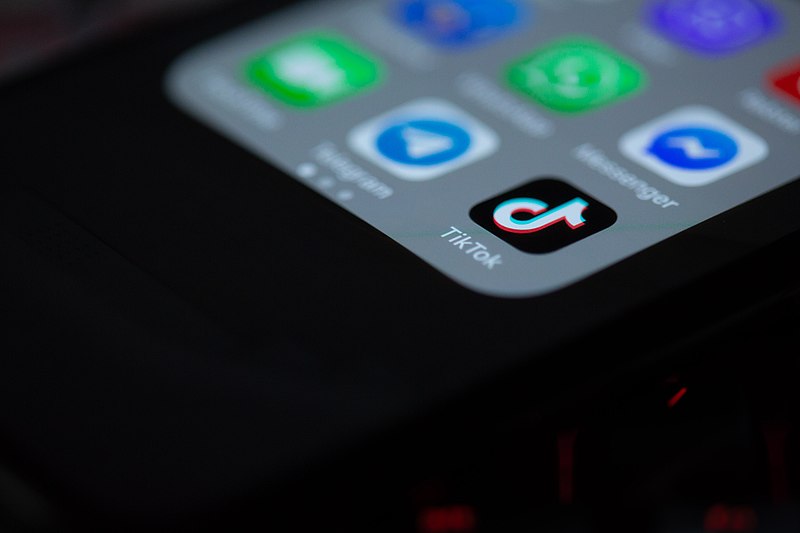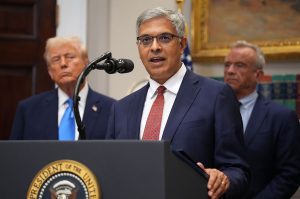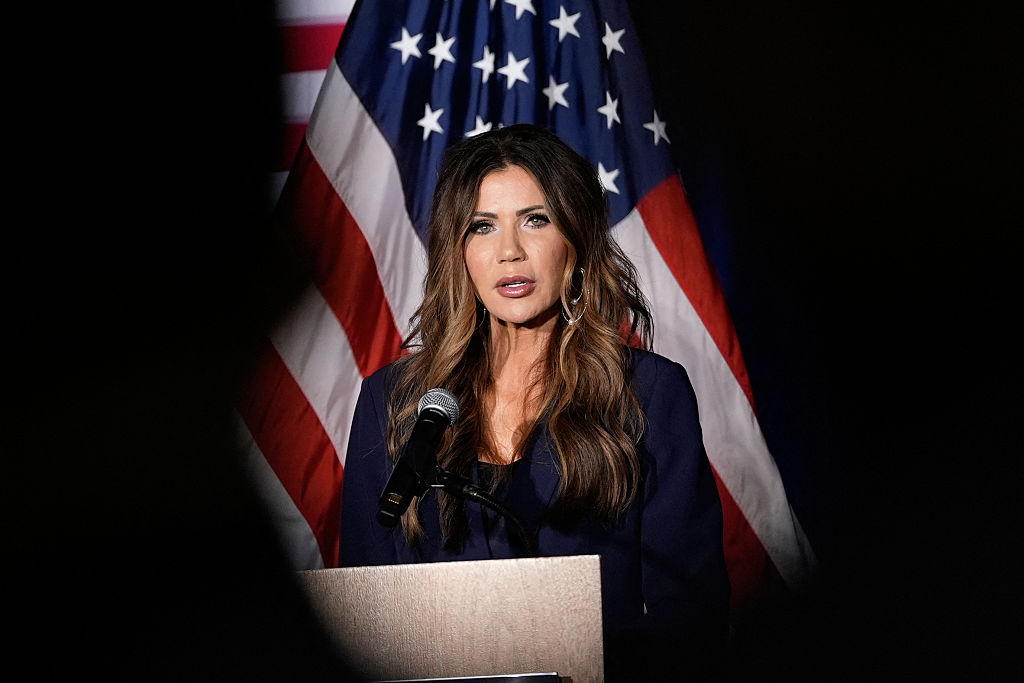A bipartisan case for taming TikTok
Lawmaker warnings about the social and national security hazards of TikTok, the Chinese-owned social network, aren’t new. But it has invariably been Republicans expressing their concern. That, though, is changing.
On yesterday’s Sunday shows, two senators — one Republican and one Democrat — used their appearances to label the app a Chinese surveillance tool.
On Fox News Sunday, Arkansas Republican Tom Cotton called TikTok “one of the most massive surveillance programs ever, especially on America’s young people.” In his appearance on the same show, Mark Warner, a Virginia Democrat who also chairs the Senate Intelligence Committee, called the platform “an enormous threat” and pointed out that “all of that data that your child is inputting and receiving is being stored somewhere in Beijing.”
The bipartisan intervention comes days after FBI Director Christopher Wray delivered a stark warning about the possible dangers of TikTok in an appearance on the Hill, and a few weeks after Senator Marco Rubio (the ranking Republican on the Intelligence Committee) and Wisconsin Congressman Mike Gallagher announced plans to introduce legislation banning TikTok in the US.
Last year, Joe Biden overturned various Trump administration executive orders targeting the app and ordered a review into the security concerns surrounding the Bytedance-owned app. This summer, Buzzfeed reported on the various ways in which the company accesses US data from China, something it had denied doing.
Biden’s review is ongoing. In the meantime, though, the president has used the app as a major outreach tool to voters, inviting influencers popular on the app into the White House. In late September, the New York Times reported on a draft agreement that would allow the app to keep operating in the US.
But the more we learn about the app, the less reassuring anything other than a ban looks. Meanwhile, Warner’s decision to sound the alarm gives the case against TikTok the boost of bipartisan legitimacy. In this environment, and with Biden taking a hawkish line on China in other areas, will the administration really settle for an outcome that keeps the app in Chinese hands?
The TikTok issue is an important test of what, if any, productive bipartisan work the next Congress will get done on China. It’s an important question, for this is both among the most important challenges facing America, and a rare area of considerable agreement between the two parties.
Writing shortly after the midterms, the historian and Bloomberg columnist Niall Ferguson sketched out a “low-probability, high-impact” scenario under the new Congressional math. Ferguson posits that a consensus on China could focus minds, framing otherwise divisive issues like energy and immigration in terms of Cold-War competition that makes agreement more likely.
The more likely scenario, he concedes, is unconstructive gridlock. But it’s an interesting thought. And even if we aren’t on the brink of a new era of bipartisanship, recent legislation like the CHIPS Act is a sign that, when it comes to China, bitter division on other issues doesn’t necessarily stop cooperation in the national interest.
*** Sign up to receive the DC Diary in your inbox here ***
DSCC chair credits Trump with helping Democrats
As chair of the Democratic Senatorial Campaign Committee, Michigan Senator Gary Peters was one of the architects of his party’s surprisingly strong midterm performance. And his post-game analysis is striking for the way in which it points to his opponents’ weaknesses rather than his side’s strengths.
“There’s no question,” said Peters in an interview with NBC news, “that Donald Trump is a motivating factor for turnout when it comes to Democratic voters.”
As for the future, Peters suggested his job will be a lot easier the longer Donald Trump sticks around: “It depends what the party does. If the party continues to be following the Trump model and is Trumpian and doesn’t go back to their more conservative roots of the traditional Republican Party, I will say, definitely that’ll be a problem,” he said.
Big weekend for birthday boy Biden
Naomi Biden, the president’s eldest grandchild, and Peter Neal were married at the White House Saturday. As far as these things go, it was a fairly private affair. But one item stuck out on the short list of details we learned in the reporting of the wedding. Not the Ralph Lauren dress, but the fact that, per Katie Rogers at the New York Times, Naomi and her now husband live at the White House. An unusual set up, but one in keeping with the fact that Biden and Naomi are very close.
If Saturday was a day for a big bash, Sunday was the day for a celebration that the first family seem keen to downplay: the president’s eightieth birthday. For the first time in American history, the country is being run by an octogenarian. No wonder the White House hasn’t made much of it.
2016 all over again?
Anti-Trump warnings were also delivered from the stage at the Republican Jewish Coalition summit in Las Vegas this weekend. If Donald Trump’s early announcement of his candidacy amounted to a starting gun for 2024, this Nevada powwow was confirmation that the race is well and truly underway. In a casting call for presidential hopefuls, the emphasis was on the need to move on, with countless not-so-subtle references to ego and personality cults. But the event was also a reminder of the risk that 2024 becomes a repeat of 2016, when alternatives to Trump failed to consolidate around a single alternative. From Trump’s point of view, the more crowded the field, the better. It’s early days, but with everyone from Mike Pence and Mike Pompeo to Nikki Haley and Larry Hogan flirting with a run, feelings of déjà vu are entirely understandable.
What you should be reading today
Ben Domenech: Mike Pompeo prepares for 2024
Andrew Sullivan: The Trumpists have gone full Nagasaki
Ben Sixsmith: In defense of Twitter
Tom Fairless, Wall Street Journal: US-Europe trade booms as old allies draw closer
Trip Gabriel, New York Times: Democratic Senate loss in Ohio raises bar for Sherrod Brown
Jack Shafer, Politico: The pundits blew the midterms. Who’s surprised?
Poll watch
President Biden job approval
Approve: 42.1 percent
Disapprove: 54.4 percent
Net approval: -12.3 (RCP Average)
How would you rate the current state of the US economy?
Excellent: 7 percent
Good: 19 percent
Fair: 27 percent
Poor: 42 percent (YouGov/Economist)

























